This month we want to update you on the Lucas García genocide case, the struggle to protect the water in Huehuetenango, and how our end of year celebration went! A common theme that has emerged as we analyze the current conditions in Guatemala is the historic and current militarization that impacts all struggles.
For that reason, our next quarterly report (to be published late February) will analyze how US and Guatemalan militarization is interconnected, what impact this has on our partners and the people of Guatemala as a whole, and what you can do about this crisis. Make sure you receive a paper copy to your home by donating here, or you can read it on our website a week after it’s published!
Lucas Garcia Genocide Trial
After 3 years of waiting, the opening of the oral debate to determine the criminal responsibility of Benedicto Lucas Garcia and Manuel Callejas y Callejas for the crimes of genocide, forced disappearance and crimes against humanity for the military operations deployed in the Maya Ixil region between 1978-1982 was scheduled for January 9.
However, the hearing was suspended due to a challenge filed by the defense of the AJR to replace Judge Andrea Julieta Lobos, because she is a relative of former military personnel who were part of the combat units in the Ixil region in the 1970s. Therefore, the start of the trial is delayed until the High Risk Chamber decides whether the judge can continue to hear the case or must be removed. After the recent suspension, no new date has been assigned to resume the trial.
As NISGUA we are concerned about the obstruction of access to justice for victims, through delaying tactics such as appointing judges with conflicts of interest. Stay tuned to our networks for information on the progress of the case and opportunities for action.
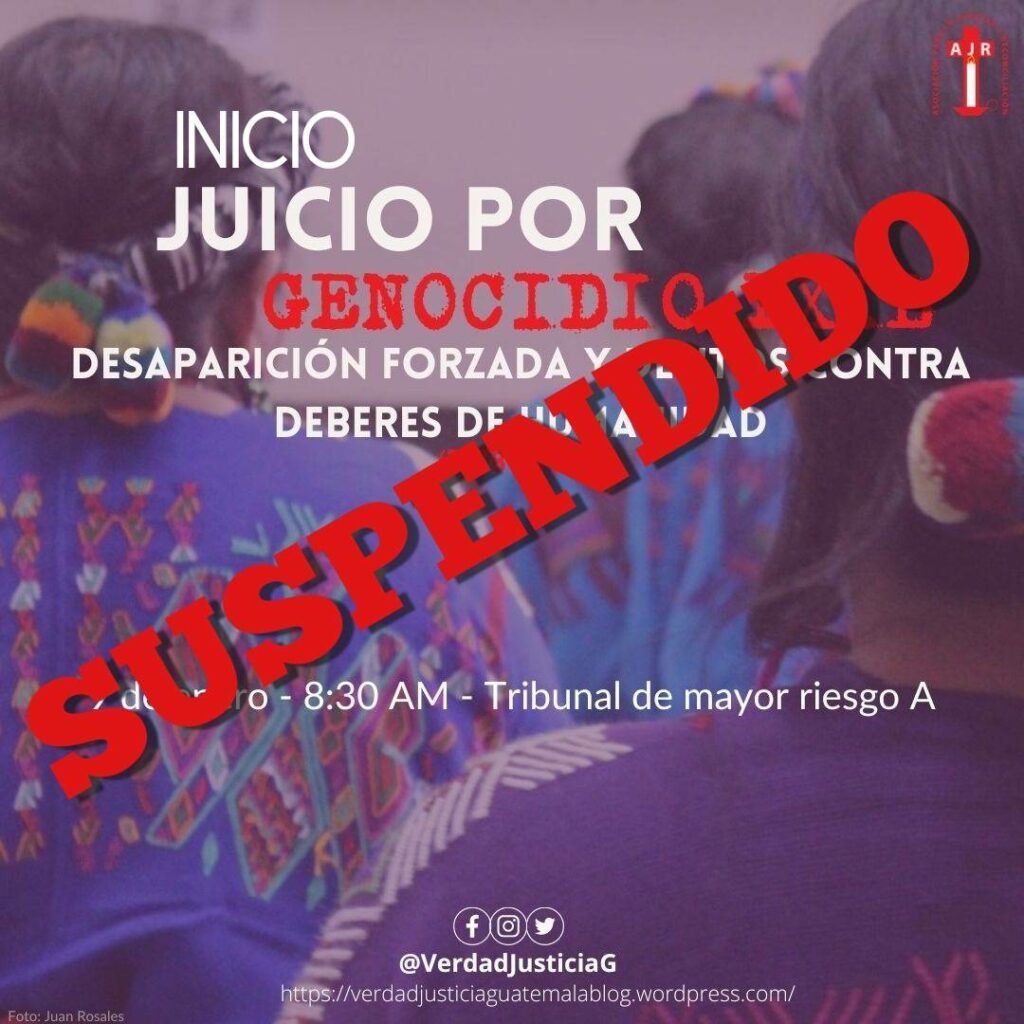
Photo credit: Verdad y Justicia Guatemala
Militarization in the Fight for Water
The Departmental Assembly of the Peoples of Huehuetenango (ADH) is organizing to defend the water from corrupt political actors, extractive megaprojects, and militarization used in favor of these and against the people. Currently the ADH is attempting to establish municipal water protection agreements in all 31 municipalities of their department, and they are doing so through popular education and grassroots organizing.
In contexts of high political risk for defenders of water, land, nature, life – as is Guatemala, but also increasingly so the United States – the ADH shares profound ancestral wisdom with all of us who struggle for life.
Read the powerful and profound reflection of NISGUA’s internacionalista, Maisie, after their visit to the comrades of the ADH.
Thank you for another year together!
Thank you very much dear friends for your accompaniment in 2022. As an expression of resisting the onslaught of oppressive systems, at the close of the year, we virtually celebrated territories in resistance by honoring the struggles of peoples across borders.
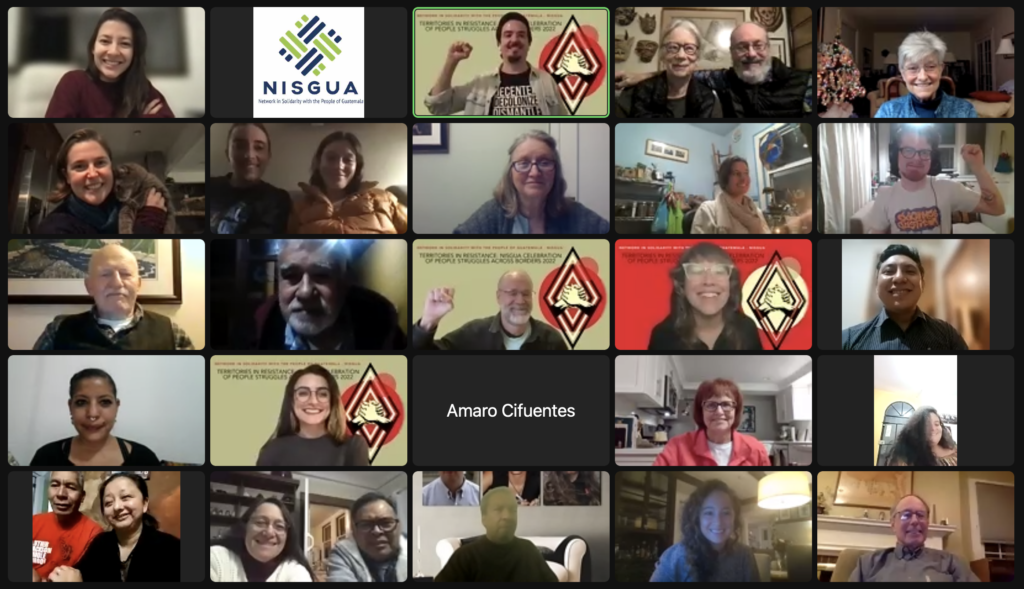
It was a moment in which hearts were united, sharing Rebeca Lane’s rebellious music; admiring the creativity to preserve the historical memory of the value of coffee of the Tinamit Tolimán Cooperative; hearing about the generational struggle for the defense of the bodies-territories from the menstrual education project of Guatemala Menstruante; making connections between ancestral healing knowledge, art and technology from Santiago Atitlan projects; and celebrating our roots and belonging in the different territories we migrate to, after resisting the onslaught of oppressive systems, as the comrades of Guatemaya L.A. Women in Resistance do.
In case you missed the event, want to rewatch it, or would like to share if with a friend, you can find the recording below:
Haven’t claimed your 2023 Calendar yet?
You’re still in time to purchase NISGUA’s 2023 bilingual calendar! We have thoughtfully designed it to inspire hope and resistance this new year!
Each month you will find images ranging from the lush green lowlands to the eastern Dry Corridor, from Shell River in the north to the black-sand beaches of the south. We feature people protecting and celebrating territory on fields and streets, at trials and protests, through dance and ceremony.
Every purchase will help fund NISGUA’s direct solidarity work with land defenders. We couldn’t do this work without you. Join us.

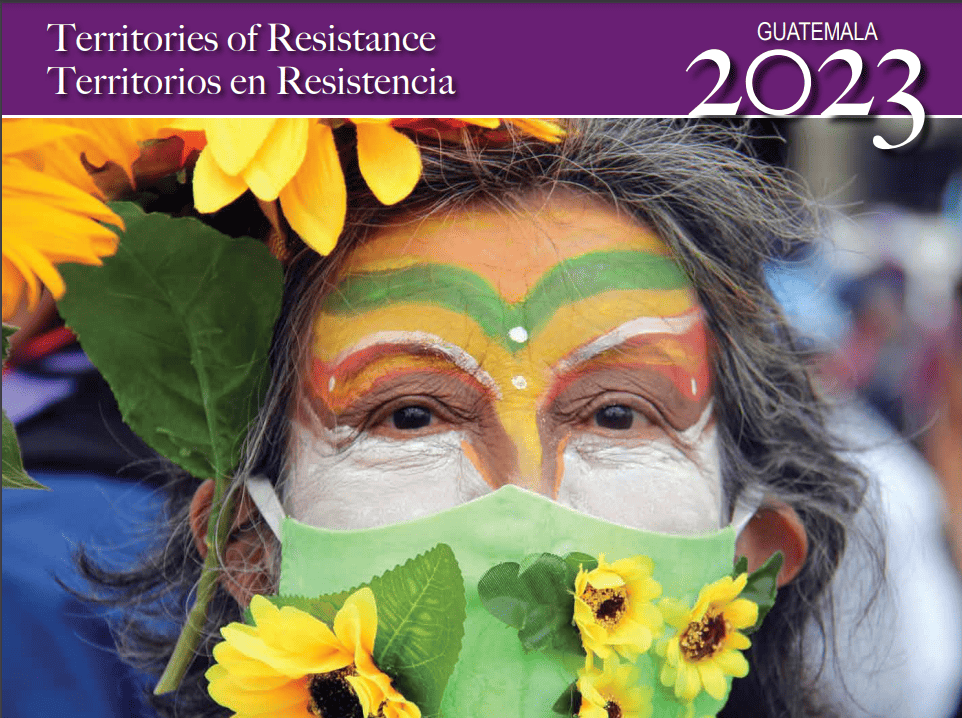
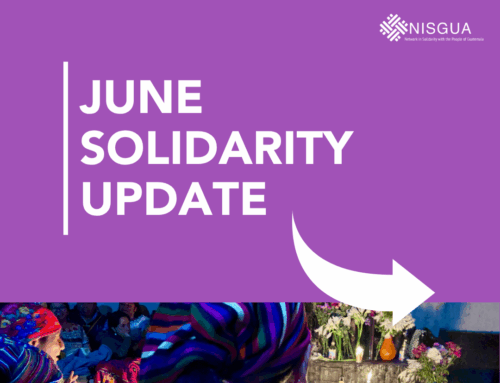
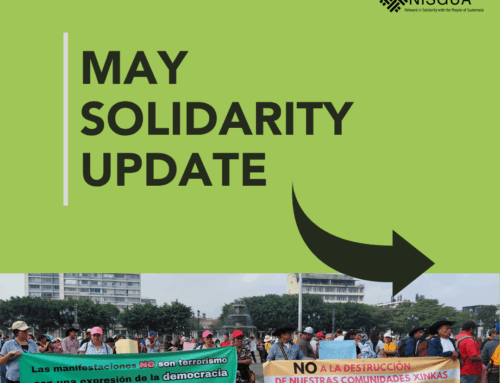
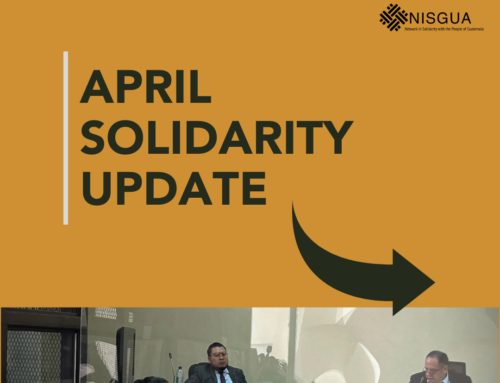
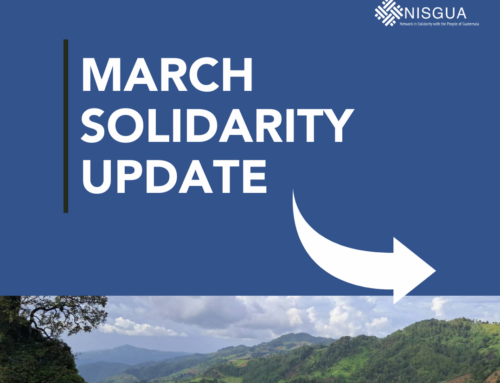
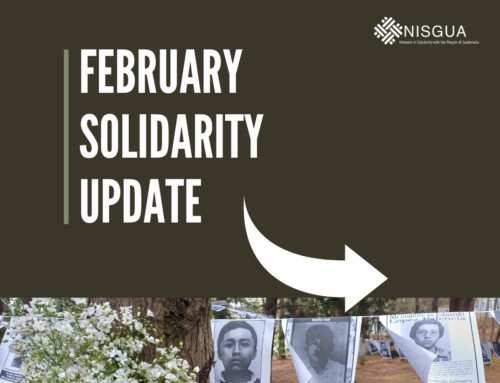
Leave A Comment